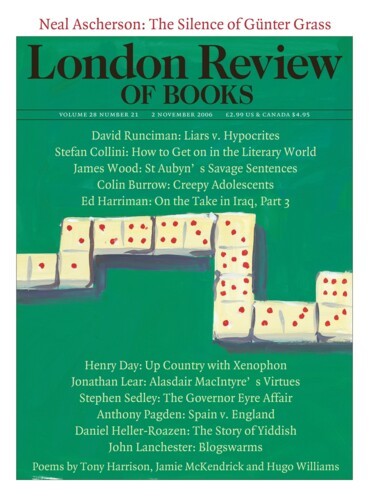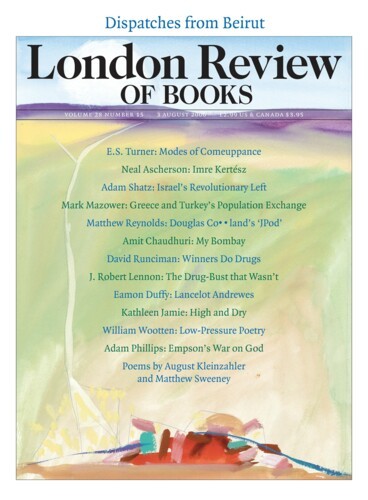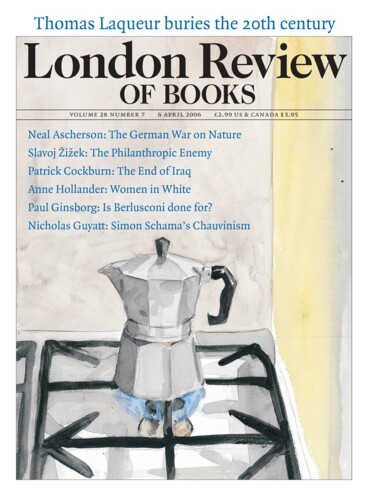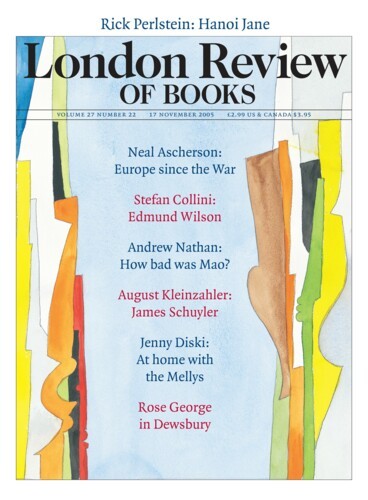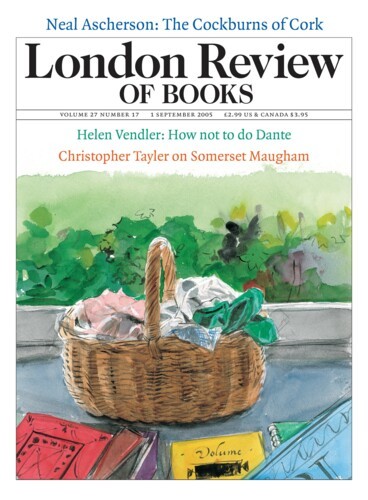Even Now: The Silence of Günter Grass
Neal Ascherson, 2 November 2006
The history of modern Germany is, in part, a history of silences. There were questions one learned not to answer, and things one learned not to say because ‘there is no point in talking about all that.’ With Grass, we meet such a German silence in one of Europe’s most prolific writers and speakers, behind one of the loudest voices arguing for honesty and humanity. But it’s worth asking how total this silence really was. Grass’s family knew, of course. Maybe he told a few friends. More curiously, hundreds of young men must have known him in those months, during training or in action; if they survived, they surely recognised their old comrade in the famous West German writer and knew what unit he had served in. They said nothing. And journalists and literary researchers in recent years could have dug up the facts, which were lying around in openly available documents; Grass had registered as an ex-Waffen SS soldier when he was released by the Americans. But even if some of them turned up those papers, none of them mentioned it. It seems certain to me that a quite large number of people, far from all of them admirers of his work or his politics, were aware that Grass had been in the Waffen SS but thought that ‘there is no point in talking about all that.’
